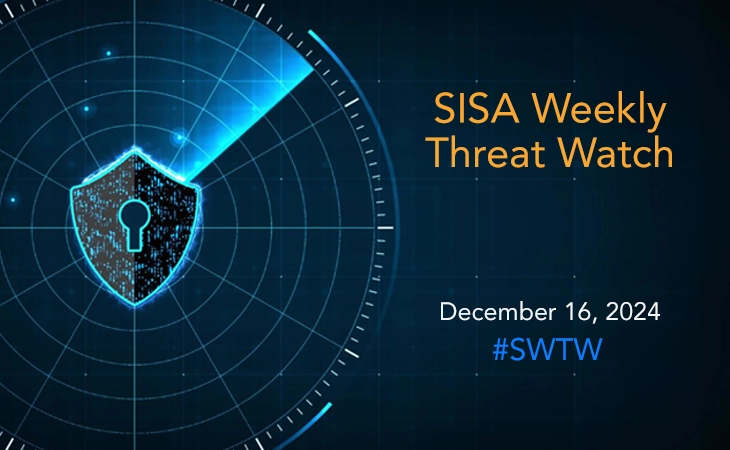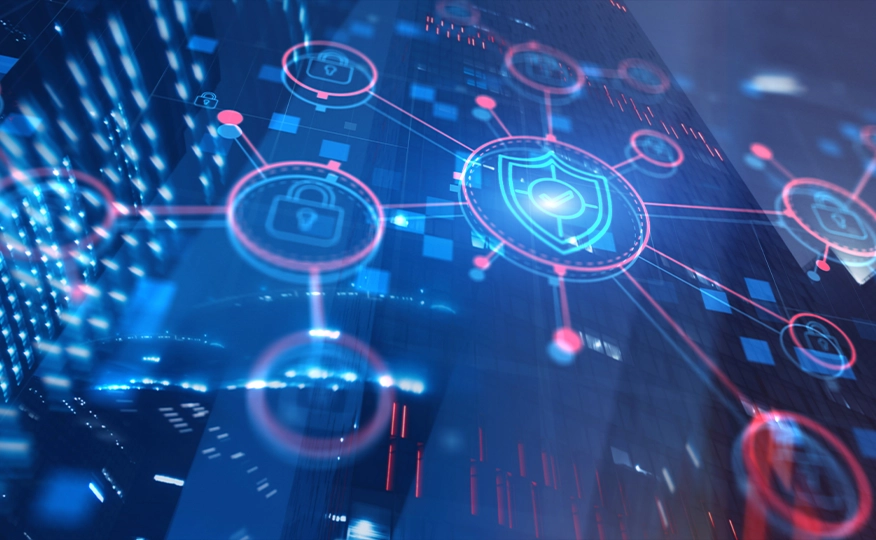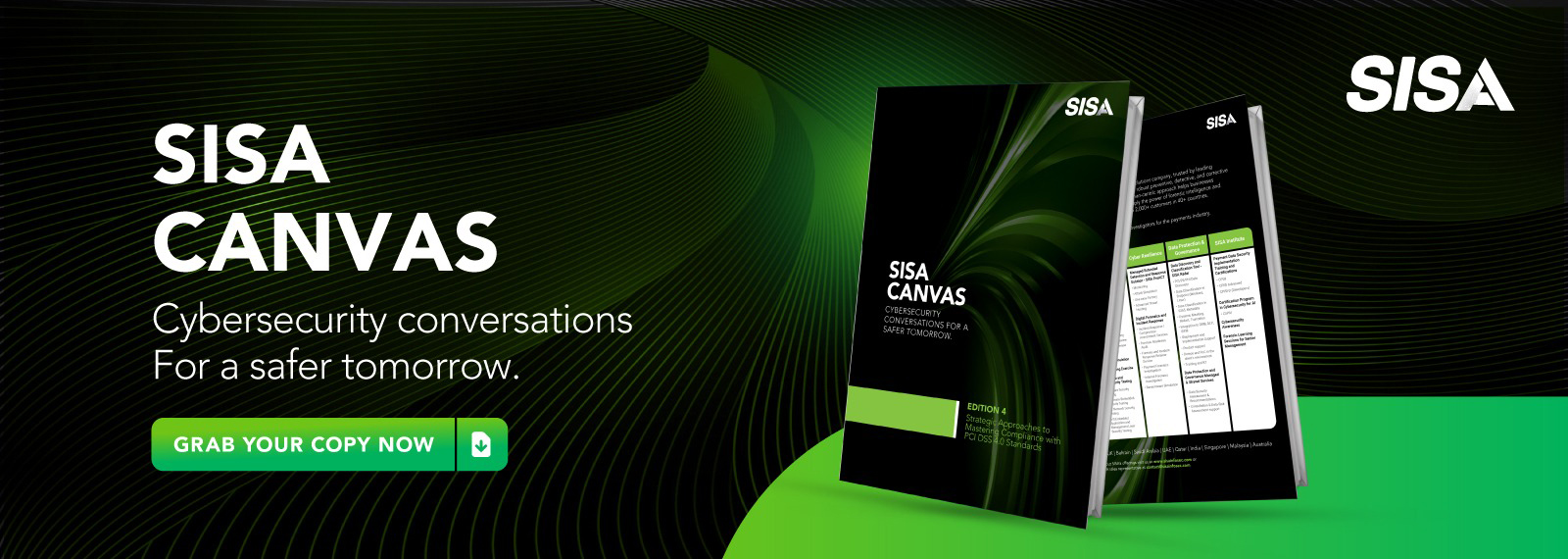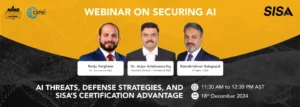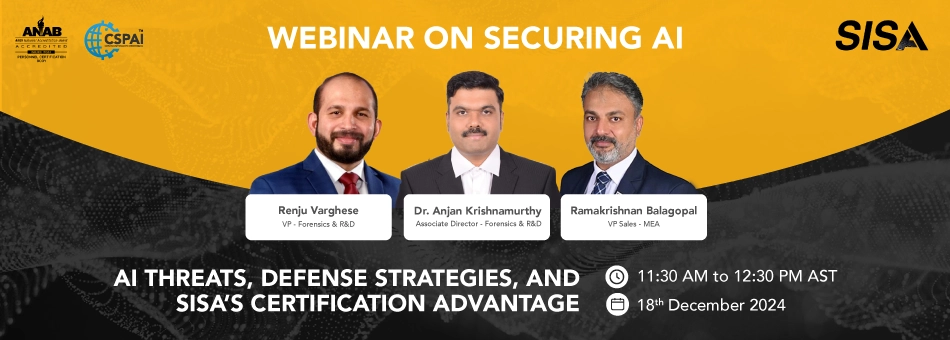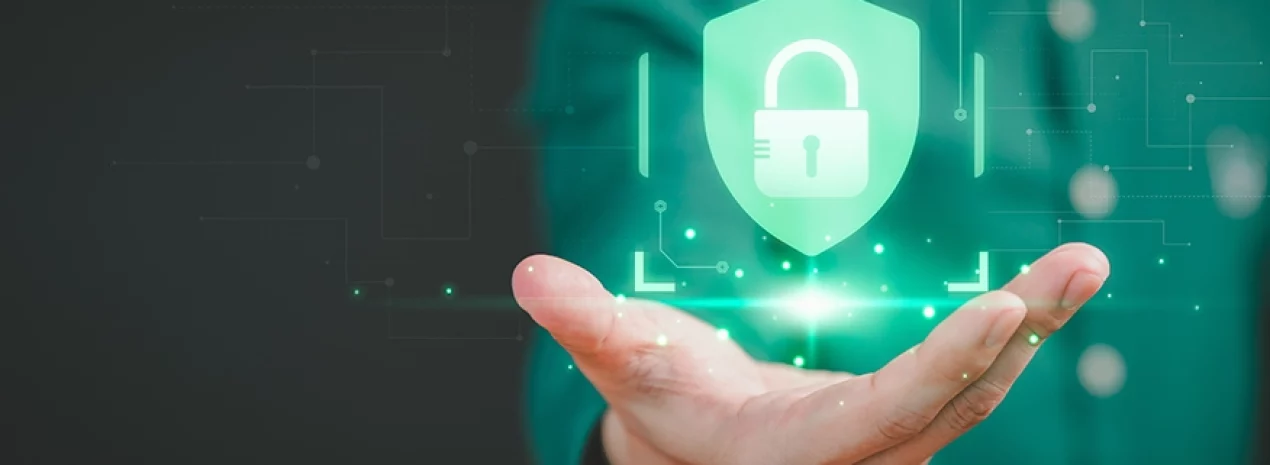
Top 10 Cybersecurity Certification Courses For Professionals In 2024
In today’s rapidly evolving digital landscape, having the right cybersecurity certification is essential for professionals seeking to safeguard critical information and advance their careers. “Top 10 Cybersecurity Certifications in 2024” provides an in-depth look at the most valuable credentials that empower individuals to stay ahead of emerging threats and industry trends. These certifications are designed to build expertise in areas such as data protection, AI security, and ethical hacking, ensuring professionals are equipped with the skills necessary to tackle complex cybersecurity challenges.
Whether you’re aiming to deepen your knowledge in specialized fields or broaden your understanding of essential security practices, these cybersecurity certification courses offer a pathway to career growth and leadership opportunities. They serve as a powerful endorsement of your skills and dedication to upholding the highest standards in cybersecurity, ensuring you stay competitive in a constantly evolving field.
1. Certified Security Professional for Artificial Intelligence (CSPAI)
The CSPAI certification is a pioneering program, being the world’s first ANAB-accredited certification focused on AI security. It is designed for professionals to master the security aspects of AI and GenAI integration within business applications. The program emphasizes the calibration of security requirements for AI deployments, offering in-depth knowledge on securing AI models and adhering to global regulations. CSPAI is ideal for those looking to advance their careers as AI Security Specialists, AI Compliance Managers, or Cybersecurity Consultants focusing on AI-driven technologies.
The program effectively covers the use of AI in Business As Usual (BAU) scenarios, emphasizing the critical need to secure applications against threats and vulnerabilities posed by AI models. It aligns with the latest insights from the Gartner Hype Curve, focusing on the benefits and future applications of GenAI LLMs, making it an essential credential for staying ahead in the evolving AI landscape.
Benefits of the CSPAI Certification
- Master AI Security and Risk Management: Gain a comprehensive understanding of AI security, including strategies to protect AI models and manage risks in GenAI and LLMs.
- Achieve Compliance Excellence: Learn how to align AI deployments with international standards like ISO and NIST, ensuring regulatory compliance and data privacy.
- Enhance AI-Driven Cybersecurity: Understand how to integrate AI in day-to-day cybersecurity functions, improving threat detection and response.
- Lead AI Innovation Securely: Become proficient in implementing secure AI applications in business environments, ensuring both innovation and safety.
Requirements:
To qualify for the CSPAI certification, candidates must meet one of the following criteria: possess a minimum of 2 years of verified full-time experience in an Information Security or AI/ML-related role, or have completed the 16-hour CSPAI workshop, or have attended a formal training program of at least 16 hours that covers the topics outlined in the CSPAI exam blueprint. These requirements ensure that candidates are well-equipped to specialize in securing AI applications, managing AI-driven risks, and maintaining adherence to global AI security standards.
2. Certified Information Systems Security Professional (CISSP)
The CISSP certification from (ISC)² is a globally recognized credential designed for professionals seeking to excel in the field of information security. It provides a deep understanding of cybersecurity principles, risk management, and security operations, making it an essential certification for those aiming to become leaders in IT security. This certification is ideal for roles such as Security Manager, IT Director, Security Consultant, and Chief Information Security Officer (CISO).
Achieving the CISSP certification equips professionals with the expertise to design, implement, and manage top-tier cybersecurity programs, ensuring an organization’s assets are well-protected against evolving cyber threats.
Benefits of CISSP Certification
- Enhance Earning Potential: CISSP-certified professionals are highly sought after, reflecting the value and demand for their expertise in the cybersecurity field. This certification opens up opportunities for higher-paying roles and greater career advancement.
- Boost Competitiveness: Holding a CISSP signals to employers that you have the skills and experience needed for senior-level security roles, making you a preferred candidate for career advancement.
- Build Cybersecurity Expertise: The certification process ensures in-depth knowledge of critical cybersecurity topics, from risk management to security architecture, which remains current through mandatory continuing education.
Requirements: To qualify for the CISSP certification, candidates must have at least four to five years of hands-on experience in information security. It is designed for professionals looking to elevate their knowledge in areas like governance, risk management, security architecture, and incident response.
3. Certified Payment Industry Security Implementer (CPISI)
The CPISI certification from SISA Institute is a specialized program tailored for professionals and enterprises in the digital payments industry. It equips individuals with the skills and knowledge necessary for efficient and cost-effective PCI-DSS implementation, a critical standard in securing payment card data. This certification is particularly valuable for those aiming to advance their careers as Payment Security Specialists, Payment Technology Managers, Payment Security Auditors, Payment Security Consultants, or Security Compliance Managers.
Earning the CPISI certification equips professionals with the skills and knowledge needed to implement PCI-DSS efficiently and cost-effectively, making it a vital credential for those seeking to excel in the rapidly evolving digital payments industry.
Benefits of CPISI workshop
- Master PCI DSS Essentials: Acquire comprehensive knowledge of 12 mandatory PCI DSS requirements.
- Real-World Implementation Skills: Learn implementation strategies through real case scenarios and analysis of recent payment data breaches.
- Become a Certified Payment Security Implementor: Achieve certification as a payment security implementor to guide organizations toward PCI DSS compliance.
- Support Strategic Decision-Making: Assist senior management in creating robust business cases for implementing advanced technology controls.
Requirements:
To qualify for the CPISI certification, candidates must meet one of the following eligibility criteria: possess a minimum of 1 year of verified full-time experience in an Information Security-related role, or have completed the 16-hour CPISI workshop, or have attended a formal training program of at least 16 hours that covers the topics outlined in the CPISI exam blueprint. These options ensure that candidates have the foundational knowledge and skills necessary to excel in payment security and compliance.
4. CompTIA Security+
The CompTIA Security+ certification is a well-established entry-level credential in the cybersecurity field, ideal for IT professionals who want to build a strong foundation in cybersecurity. This certification is particularly beneficial for those pursuing careers as Systems Administrators, Security Administrators, Junior IT Auditors, or Security Engineers. It validates essential cybersecurity skills, ensuring that individuals are prepared to address a variety of security challenges in today’s IT environments.
Earning the CompTIA Security+ certification proves that professionals have the core competencies required for a range of cybersecurity roles. With an emphasis on hands-on, practical skills, this certification ensures that professionals can effectively handle security incidents, making them valuable assets in their organizations.
Benefits of the CompTIA Security+ Certification:
Prove Your Knowledge: Achieving this certification demonstrates mastery of key security concepts, validating your skills to employers and peers.
- Earn the Industry Standard: CompTIA Security+ is widely recognized as a foundational certification for cybersecurity, making it a preferred credential for early-career professionals in the field.
- Boost Career Opportunities: Holding a Security+ certification can give candidates a competitive edge during the hiring process, as many HR managers use it as a criterion for recruitment.
- Showcase Professional Impact: Certified IT professionals often perform at higher levels, with a proven ability to handle complex security scenarios compared to their non-certified counterparts.
- Career Advancement: Security+ serves as a gateway to further certifications and specialized roles, helping professionals chart a clear path for long-term growth in the IT and cybersecurity sectors.
Requirements: While there are no strict prerequisites for taking the CompTIA Security+ exam, it is recommended that candidates have around two years of IT administration experience with a focus on security. Additionally, pursuing the CompTIA Network+ certification beforehand can provide a solid foundation in IT fundamentals, making the Security+ path more accessible.
5. Certified Information Systems Auditor (CISA)
Certified Information Systems Auditor (CISA) The CISA certification is a highly respected credential focusing on identifying and assessing security vulnerabilities, implementing effective controls, and ensuring organizational compliance. It is ideal for IT professionals looking to advance their careers in IT auditing, control, and security.
CISA® Training Course Overview Certified Information Security Auditor (CISA) is a globally recognized certification that builds on the experience of information systems professionals, making them valuable assets in the field of IT auditing, control, and security. This specialized CISA course covers five key domains of IS auditing, equipping participants with the skills needed to pass the exam on their first attempt.
Benefits of the CISA Certification
- Master IT Auditing Standards: Gain expertise in auditing, monitoring, and assessing IT systems and business processes, ensuring they align with global best practices.
- Stay Ahead with Emerging Technologies: CISA certification addresses the impact of AI, blockchain, and other innovations, ensuring audit professionals stay current with the latest trends.
- Apply a Risk-Based Approach: Develop the ability to apply a risk-based perspective to audit engagements, making your skills indispensable in today’s evolving IT landscape.
- Boost Career Growth: CISA is recognized globally as a standard of achievement, providing a competitive edge for roles such as IT Auditor, Compliance Manager, and Information Security Analyst.
Requirements:
To be eligible for the CISA certification, candidates must successfully complete the CISA examination. While anyone with an interest in information security can take the exam, candidates must meet the minimum experience requirements before certification is granted. Specifically, five years of professional work experience in information systems auditing, control, or security is required. This experience must be acquired within the 10-year period preceding the certification application date. Candidates have five years from the exam passing date to meet the experience requirement and apply for certification.
6. Certified Information Security Manager (CISM)
Certified Information Security Manager (CISM) is a globally recognized credential designed for professionals who focus on managing and overseeing an organization’s information security program. It is ideal for those aiming to advance their careers in information security management, risk management, and compliance.
CISM validates the expertise required to establish and manage an enterprise information security program. The certification focuses on four key areas: Information Security Governance, Risk Management, Information Security Program Development, and Incident Management. It equips professionals with the skills to design and maintain a robust security architecture, ensuring that an organization remains compliant and resilient against emerging cyber threats.
Benefits of the CISM Certification
- Improved Skills & Knowledge: Preparing for the CISM credential helps identify areas of improvement in IT security and deepens your understanding of critical cybersecurity topics. This process not only enhances your knowledge but also equips you to address complex security challenges.
- Increased Credibility: The CISM certification adds credibility, positioning you as a trusted expert in the field. It assures employers, colleagues, and clients of your capability to manage security programs and align them with business goals.
- Career Advancement: Holding a CISM credential can significantly boost your career prospects. Certified professionals are often considered for senior roles such as IT Security Manager, Chief Information Security Officer (CISO), and Risk Analyst, making it a valuable asset for career progression.
- Global Recognition: CISM is recognized worldwide as a standard of excellence in information security management, providing you with a competitive edge in the global job market.
Requirements:
To be eligible for the CISM certification, candidates must demonstrate a minimum of five years of professional experience in information security management across the CISM job practice areas. While the exam is open to anyone interested in information security, candidates who pass the CISM exam must fulfill the experience requirements within five years of the passing date to apply for certification. The required work experience should be gained within the 10-year period preceding the application date for certification.
7. Certified Ethical Hacker (CEH)
The Certified Ethical Hacker (CEH) certification is a globally respected credential designed to equip cybersecurity professionals with the skills to identify and counteract various cyber threats. It focuses on understanding the ethical hacking phases, identifying security vulnerabilities, and implementing effective countermeasures. CEH is ideal for IT professionals aiming to advance their careers in roles like Ethical Hacker, Penetration Tester, and Cybersecurity Analyst.
Certified Ethical Hacker (CEH) v13 offers a comprehensive training program that blends theoretical knowledge with hands-on practical skills. Enhanced with AI capabilities, CEH v13 enables professionals to understand how cybercriminals think and act, making it easier to set up robust security infrastructures. This specialized course covers all major ethical hacking domains, providing the necessary skills to pass the CEH exam on the first attempt and effectively perform the role of an ethical hacker.
Benefits of the CEH Certification
- Master Ethical Hacking Techniques: Gain deep insights into the latest hacking tools, methodologies, and strategies used by cyber adversaries.
- Hands-On Learning: Focus on practical applications in a simulated environment, allowing you to apply hacking techniques directly to real-world scenarios.
- AI-Powered Curriculum: Leverage advanced AI capabilities to enhance your ability to defend against AI-driven cyberattacks.
- Industry-Recognized Credential: CEH certification is a globally recognized standard, providing a competitive edge in the cybersecurity job market.
Requirements:
To be eligible for the CEH certification, candidates can either complete an accredited training course or pursue self-study with proof of at least two years of professional experience in information security. For those without the required experience, a detailed educational background must be submitted for review. The CEH certification is ideal for professionals seeking to validate their ethical hacking skills and advance in the field of cybersecurity.
8. Global Information Assurance Certification (GIAC)
Global Information Assurance Certification (GIAC) is a leading certification body in information security, recognized for setting high standards in cybersecurity expertise. Established in 1999, GIAC offers a range of specialized certifications that validate hands-on skills across various domains, including cybersecurity roles such as ethical hacking, cyber defense, and penetration testing.
The GIAC certification programs provide in-depth training across over 40 information security specializations. Candidates gain practical skills, ensuring they can apply their expertise immediately in real-world situations. These certifications are stackable, allowing professionals to build their knowledge progressively—from foundational Practitioner Certifications to advanced Applied Knowledge and Portfolio Certifications, including the GIAC Security Expert (GSE).
Benefits of GIAC Certification
- Validated Cybersecurity Proficiency: Demonstrate technical expertise and hands-on skills in a range of cybersecurity domains.
- Career Advancement: GIAC certification enhances job readiness and provides a competitive edge for roles such as security analyst, penetration tester, and more.
- Adapt to Emerging Threats: Stay up-to-date with the latest cybersecurity tools, techniques, and best practices.
- Specialized Focus Areas: Tailor your certification path with targeted skills in offensive operations, cyber defense, cloud security, and more.
Requirements:
To earn a GIAC certification, candidates must pass a hands-on exam that tests their ability to address cybersecurity challenges. Although formal education is not required, a solid grasp of cybersecurity basics is recommended. Certifications are valid for four years and can be renewed through CPE credits or retaking the exam. This certification is suited for those aiming to prove their skills and enhance their cybersecurity expertise.
9. Certified Cloud Security Professional (CCSP)
The CCSP certification is a recognized credential for professionals aiming to enhance their skills in managing and securing cloud infrastructures. It is ideal for security architects, consultants, administrators, managers, and IT professionals looking to advance their expertise in cloud-based security. This certification helps professionals design and implement robust cloud security programs, ensuring effective IT governance within their organizations.
The CCSP is a leading cloud security certification that validates a professional’s ability to secure, manage, and design cloud environments. It emphasizes best practices, industry policies, and procedures necessary for maintaining the highest level of security. This course is especially valuable for those committed to mastering the complexities of securing applications, infrastructure, and data on cloud platforms.
Benefits of the CCSP Certification
- Master Cloud Security Best Practices: Learn to implement industry-leading practices for safeguarding cloud infrastructures and applications.
- Enhance Your Professional Credibility: CCSP certification showcases your expertise in cloud security, making you a valuable asset in the job market.
- Expand Career Opportunities: Gain access to advanced roles like cloud security architect or consultant, boosting your career growth.
- Stay Ahead of Industry Trends: The CCSP credential ensures you stay updated with the latest developments and challenges in cloud security.
Requirements:
To be eligible for the CCSP certification exam, candidates must have at least five years of full-time paid work experience in IT, with three years in information security and one year in at least one of the six CCSP CBK domains. Alternatively, earning a relevant certification can substitute for the experience requirement. If lacking the required experience, candidates can pursue the associate path and gain up to six years to fulfill the experience criteria while maintaining their certification status.
10. Offensive Security Certified Professional (OSCP)
The Offensive Security Certified Professional (OSCP) certification is a highly respected credential that validates practical skills in penetration testing. Developed and administered by Offensive Security (OffSec), this certification is particularly known for its hands-on approach, requiring candidates to exploit vulnerabilities and compromise live machines within a controlled lab environment. The OSCP is ideal for professionals looking to advance their careers in ethical hacking, penetration testing, and offensive security.
The OSCP certification is based on Kali Linux, a leading open-source platform for information security tasks such as computer forensics, pen testing, reverse engineering, and vulnerability management. The certification prepares individuals to think like attackers, understand system vulnerabilities, and apply offensive techniques to enhance organizational security. The Penetration Testing with Kali Linux (PWK/PEN-200) course is the primary training pathway for the OSCP exam, providing the foundational skills and practical experience needed to succeed.
Benefits of the OSCP Certification
- Hands-On Penetration Testing Skills: The OSCP focuses on practical, real-world skills, teaching candidates how to exploit vulnerabilities in various systems and apply offensive security methodologies effectively.
- Demonstrated Expertise with Kali Linux: The certification showcases a strong command of Kali Linux tools and methodologies, making OSCP-certified professionals valuable assets in penetration testing roles.
- Career Advancement Opportunities: With the OSCP, professionals can differentiate themselves in the job market, opening doors to roles like security analyst, penetration tester, and malware analyst.
- Pathway to Advanced Certifications: The OSCP serves as a stepping stone to more advanced Offensive Security certifications like OSEP (Offensive Security Experienced Penetration Tester) and OSWE (Offensive Security Web Expert).
Requirements:
While there are no formal prerequisites for the OSCP certification, it is recommended that candidates have a strong understanding of TCP/IP networking, Windows and Linux administration, and basic Bash or Python scripting. The certification includes a hands-on exam where candidates must identify and exploit vulnerabilities in a controlled environment, making problem-solving and analytical skills crucial for success.
SISA’s ANAB-Accredited CPISI and CSPAI Certifications
SISA Institute offers industry-leading, ANAB-accredited certification programs in both payment data security and AI security through its CPISI and CSPAI certifications. The CPISI program is designed to help professionals master the essentials of payment data security, available in three flexible formats: a 2-day public workshop with 16 hours of immersive training, a CPISI Hybrid workshop that allows participants to learn at their own pace through our LMS with weekly 2-hour trainer sessions, and an in-house batch option for companies with a minimum of 15 participants. For those seeking advanced knowledge, CPISI Advanced and CPISI-D courses delve deeper into secure application development and advanced payment data security practices.
CSPAI stands out as the world’s first ANAB-accredited certification for AI cybersecurity, developed in strategic collaboration with CERT-IN. It equips professionals with the skills needed to secure AI models, understand regulatory compliance, and integrate AI into daily cybersecurity operations. With CSPAI, security professionals stay ahead in the rapidly evolving field of AI, ensuring that innovation and security go hand in hand.
SISA Institute
SISA Institute, a pioneer in ANAB-accredited payment industry security certifications, has been at the forefront of tackling the cybersecurity skill gap by providing top-notch education and training for payment industry security professionals. As the first Payment Data Security Certification globally to achieve accreditation by ANAB, a renowned accreditation body with a rich legacy of promoting standardization and conformity assessment, SISA Institute’s certifications adhere to stringent requirements, internationally recognized standards, and best practices established by ANSI. Expanding its expertise beyond payment security, SISA Institute now offers the Certified Security Professional for Artificial Intelligence (CSPAI), the world’s first ANAB-accredited certification program for AI security. Developed in strategic collaboration with CERT-IN, CSPAI focuses on securing AI models and integrating AI into business applications while addressing global compliance requirements.
With 15+ years of experience in training and certifying over 12,000 professionals from 2,000+ customers across 40 countries, SISA Institute continues to lead in providing industry-recognized certifications that empower organizations to achieve a robust and secure digital future.
Latest
Blogs
Whitepapers
Monthly Threat Brief
Customer Success Stories
 USA
USA India
India APAC
APAC Middle East
Middle East Global
Global



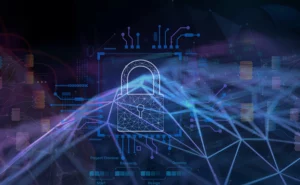


 Facebook
Facebook Linkedin
Linkedin  X
X Youtube
Youtube
